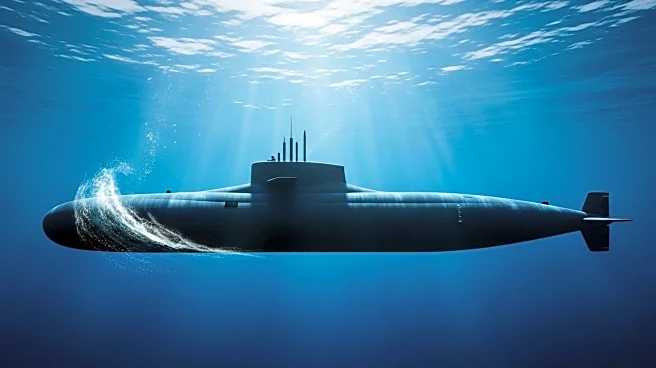What is the story about?
What's Happening?
A Finnish district court has dismissed charges against the captain and two officers of the Eagle S oil tanker, accused of damaging undersea power and internet cables in the Baltic Sea. The incident, which occurred on December 25, involved the tanker dragging its anchor across the seabed, breaking the Finnish-Estonian Estlink 2 power cable and four internet lines. The court ruled that it lacked jurisdiction to prosecute the crew, citing international maritime law which places prosecutorial power with the ship's flag state or the defendants' native countries. The Eagle S operates under a Cook Islands flag. The defendants, a Georgian captain, a Georgian first officer, and an Indian second officer, were charged with aggravated criminal mischief and interference with telecommunications. They denied the charges, attributing the anchor's release to technical faults. The court's decision is subject to appeal.
Why It's Important?
The dismissal of charges in this case highlights the complexities of prosecuting maritime incidents under international law. The incident had significant implications for regional security, as it occurred amidst heightened tensions following Russia's invasion of Ukraine. The Baltic Sea has seen multiple cable and pipeline outages, raising concerns about infrastructure security. The case underscores the challenges in holding parties accountable for such disruptions, especially when involving vessels from countries circumventing sanctions. The ruling may influence future legal approaches to similar incidents, affecting how nations address maritime security and infrastructure protection.
What's Next?
The court's decision can be appealed, potentially leading to further legal proceedings. The outcome may prompt discussions among international maritime law experts and policymakers on jurisdictional issues and the protection of critical infrastructure. Stakeholders, including NATO forces and regional governments, may seek to enhance security measures to prevent similar incidents. The case could also influence diplomatic relations, particularly concerning the enforcement of sanctions and the monitoring of vessels linked to sanctioned countries.
Beyond the Headlines
This case raises broader questions about the enforcement of international maritime law and the protection of undersea infrastructure. It highlights the need for clearer legal frameworks to address incidents involving vessels from countries under sanctions. The situation also reflects the geopolitical tensions in the region, with infrastructure security becoming a focal point in the context of international conflicts. The legal and diplomatic challenges presented by such cases may lead to long-term shifts in maritime policy and international cooperation.















